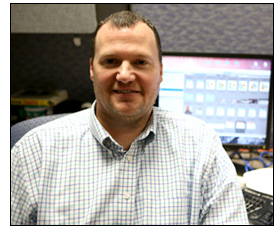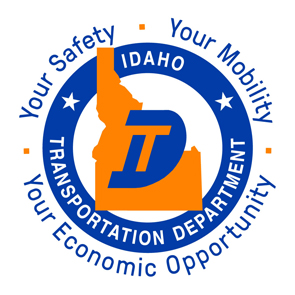
Appreciation Station
OpEd from the desk of Transporter Editor Reed Hollinshead
A while ago, we celebrated employee appreciation week for state workers. Many of our districts and divisions also have employee appreciation functions just before summer construction season really kicks off. But in reality, that spirit of appreciation shouldn't be confined to a single week, or even a month — it should be an everyday occurrence.
There are some significant differences between recognition and appreciation.Recognition is merely acknowledgement that you have employees working for you. Recognition says “I am aware of your presence.” Appreciation, however, takes it a step further. It says you bring something of value to the table. It's a whole different ballgame. It goes beyond just acknowledging your commitment to the company – it says they are committed to YOU as well. More importantly, it goes beyond just saying it and actually shows that commitment.
Compensation is a sign of appreciation. Raises certainly help morale, too. From about 2000-2010, ITD employees received exactly one raise, but that increase was quickly swallowed up by higher medical premiums and an increase in the cost of living. Losing ground like that, year after year, certainly wipes away optimism for all but the most naturally cheerful.
Now we've had raises every year since FY13. In my experience, there are only really a few things at work that "move the needle." If it has to do with my safety or the safety of my family or friends, you have my concern. If it impacts my wallet, you have my undivided attention.
Even if it’s not monetary, at least let employees know they are valued. It is unrealistic to think yearly raises will continue forever. In those “off” years, management has to find some other way of showing appreciation. We employees understand the financial constraints that may occasionally handcuff ITD, but when those same financial restraints are coupled with no other visible sign of appreciation, it comes across as abject apathy, and that in no way serves the constructive culture this department is all about.
Recently, the Idaho Transportation Board honored Terry Jacobsen in Pocatello for 60 years of service. District 5 went a step further, and renamed the lab in his honor. It was a singulary incredible honor for a singularly incredible accomplishment. That's the heartbeat of apprecia tion.
tion.
When I started in the fall of 1990, most state employees I talked to had come to the same decision: they knew they weren't ever going to get rich with state wages, but they were willing to trade potential wealth for the benefits and security of a state job. Benefits keep eroding as cost of living continues to rise, and security is still there, but is not as big a factor as before. So ITD has to find something else to attract the next generation of workers. The sense of family...of appreciation...is that calling card.
I heard this story first-hand in 2013, and it has stuck with me:
One summer a few years ago, an early-morning fire consumed the home and belongings of a worker in an eastern Oregon town. She woke up choking in her smoke-filled bedroom. Fighting to breathe, she ran out of the house with nothing but the clothes she was wearing. A single mom, her home was completed destroyed. She lost everything.
The fire investigator told her the blaze started in an electrical box outside her son’s bedroom. Fortunately, the 15-year-old had spent the night at a friend’s house.
Co-workers, physicians (she worked in a hospital), and even the hospital's board members rallied around her, offering money, gift cards for groceries, clothes, blankets, and all kinds of personal items. More items were donated each day, including groceries, household goods, and more cash.
She went through three boxes of tissues on that first day, overwhelmed with the outpouring of love and support. It was the sense of family.
It’s a wonderful example of what employee appreciation is all about. It’s how a legacy of caring is built – one action at a time.
We can spend time lamenting about the shortcoming we previously lived through during the "lean" years at ITD, or take the route that veers away from the application by previous generations, and steers more toward 21st-century inspiration.
It’s less about the past behind us and more about the path before us.
Published 06-15-18